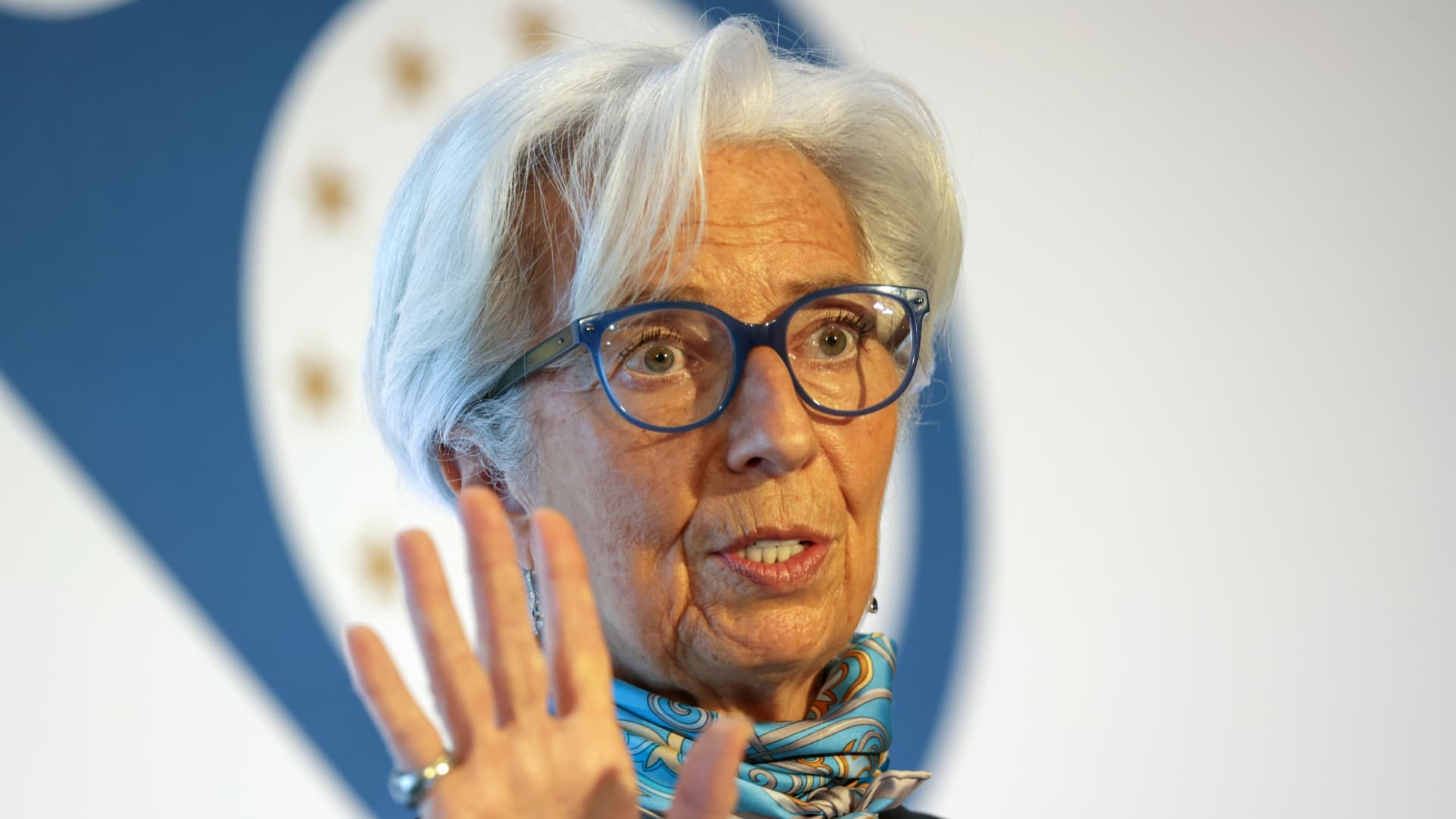
The European Central Bank is increasing interest rates for the first time in 11 years. But in Italy, political turmoil is back.
Bloomberg | Bloomberg | Getty Images
The European Central Bank on Thursday increased interest rates for the first time in 11 years in an attempt to cool rampant inflation in the euro zone.
The ECB, the central bank of the 19 nations that share the euro currency, surprised markets by pushing its benchmark rate up by 50 basis points, bringing its deposit rate to zero. Economists had expected a smaller hike of 25 basis points.
“The Governing Council judged that it is appropriate to take a larger first step on its policy rate normalisation path than signalled at its previous meeting,” the ECB said in a statement Thursday.
The Frankfurt institution had kept rates at historic lows, in negative territory since 2014, as it dealt with the region’s sovereign debt crisis and the coronavirus pandemic.
The euro rose to a session high on news of the more aggressive rate hike, to trade at $1.0257. The yield on the 10-year Italian bond also jumped on the news, extending gains after reacting to the resignation of Prime Minister Mario Draghi earlier on Thursday.
The ECB also said that this move in interest rates “will support the return of inflation to the Governing Council’s medium-term target by strengthening the anchoring of inflation expectations and by ensuring that demand conditions adjust to deliver its inflation target in the medium term.” The central bank’s inflation target is 2%.
The ECB had previously signaled it would be increasing rates in July and September as consumer prices keep surging, but it was unclear whether it would go as far as bringing rates back to zero. The ECB’s deposit rate is now 0%, the main refinancing operations rate is 0.5% and the marginal lending facility is at 0.75%.
Surging inflation
A first reading for inflation in June showed a record high of 8.6%. However, some investors are skeptical over the ECB’s actions as they predict a recession later this year. Back in June, ECB forecasts pointed to an inflation rate of 6.8% for the whole of this year, and 3.5% in 2023. In terms of growth, the central bank estimates a GDP rate of 2.1% for this year and the next.
One of the biggest uncertainties going forward is whether Russia will cut supplies of natural gas to Europe completely. Moscow has been accused of weaponizing fossil fuels as the EU slaps tough sanctions on the Kremlin for its unprovoked onslaught in Ukraine.
Natural gas flows have fallen by about 60% since June and a critical pipeline, Nord Stream 1, saw supplies resume Thursday after maintenance — albeit at a reduced capacity.
Europe’s Economics Commissioner Paolo Gentiloni has said that a full cut-off in supplies from Moscow, with Europe so dependent on Russia hydrocarbons, could push the euro zone into a recession this year, though this isn’t the EU’s base-case scenario currently.
Anti-fragmentation tool
Meanwhile on Thursday, investors kept a keen eye on details regarding the ECB’s new anti-fragmentation tool, which is aimed at supporting those nations with lofty debt piles, like Italy.
The central bank called this new tool TPI (Transmission Protection Instrument). It can be activated to counter “unwarranted, disorderly market dynamics that pose a serious threat to the transmission of monetary policy across the euro area,” it said.
“The scale of TPI purchases depends on the severity of the risks facing policy transmission,” the ECB added, while stating that further details would be published at 2:45 p.m. London time Thursday.
Expectations point to some conditionality between implementing strict domestic reforms and qualifying for this new instrument. This becomes particularly important in the context of Italian politics, where snap elections are now expected to take place in the fall after Prime Minister Mario Draghi resigned Thursday morning.
A credible government that sticks to the targets agreed with the European Commission will be critical if it’s to benefit from the new tool.
